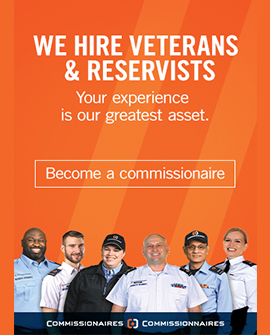Today’s Brief
From time to time we receive requests from mainstream media outlets to talk with Military Families. Please contact the person who is requesting the information. Please read Media Interview Tips, before you become the topic of an article. Keep in mind, their idea of what the story topic is may not be what you have in mind.
Media Interview Tips
REASONS FOR INTERVIEW REQUESTS:
*need for news content (slow news day)
*surfacing of controversy
*When you no longer want to be interviewed; you can be blunt, say no and hang up (like with telemarketing). Do not be intimidated. You must do what’s right for you.
*If you agree to an interview, negotiate it beforehand and perhaps have someone you trust sit through the interview with you.
NEGOTIATION PROCESS
It is recommended you gather some information from the reporter:
➢ What is his/her name? What media agency? What’s their contact number?
➢ What is the format of the interview? (live/recorded; tv/radio/print; camera/face-to-face/phone)
➢ What is the general subject? Is there another subject they will touch on?
➢ What is the context of the story? (Why now?)
Then, it is your turn to state your rules:
Remember, they need you for the interview so you can establish your ground rules. State what you will and will not talk about.
This does two major things; it establishes what you are willing to talk about and it also establishes your command over the situation.
Preparation
➢ Think of a message that you can communicate in just a few words. The essence of what you want the public to know… how proud you are of your husband / how you managed to move on in his honour and memory… etc.
➢ Learn that messages by heart. If you get asked an awkward question, something you don’t want to answer, defer with the message.
The best technique to communicate your message is the following:
ANSWER – BRIDGE – MESSAGE
Example:
Your message: Dedication
The question: “Do you agree with the mission in Afghanistan?”
Your answer: “Yes/No… but what really matters is that my husband was a dedicated soldier and I can only respect his career and feel pride for what he accomplished.”
If you can use this technique for every question, it will prevent the reporter from turning what you say upside down. Give a clear and precise answer along with your message for every question. It’s when you give long winded answers without any positive messages that the reporter can take a little piece of what you say and present it out of context in his report.
(Examples of bridges)
…I’d like to emphasize…
…but more importantly…
Media – Tricks of the Trade
Here are some tricks that the media use to obtain information:
“I’m your buddy”
The long pause (this makes you uncomfortable and they wait to see if you’ll crack and put your foot in your mouth by trying to give more information. If you’ve answered the question and communicated a message, just stay quiet and stare back at him. The reporter will eventually give up and ask you another question.)
“Just between you and I”
Wearing you down with the same question
The “relax, it’s over” chat
NOTHING IS “OFF THE RECORD”
You must always remember that everything you say to a journalist can be used.
Here it is in a nutshell;
*Know what the interview is about
*Gather the information you will need
*Negotiate the interview with the reporter
*Prepare and practice some good messages
*Remain in control of the interview
*Courtesy of to the Public Affairs Office, CF Base Gagetown



